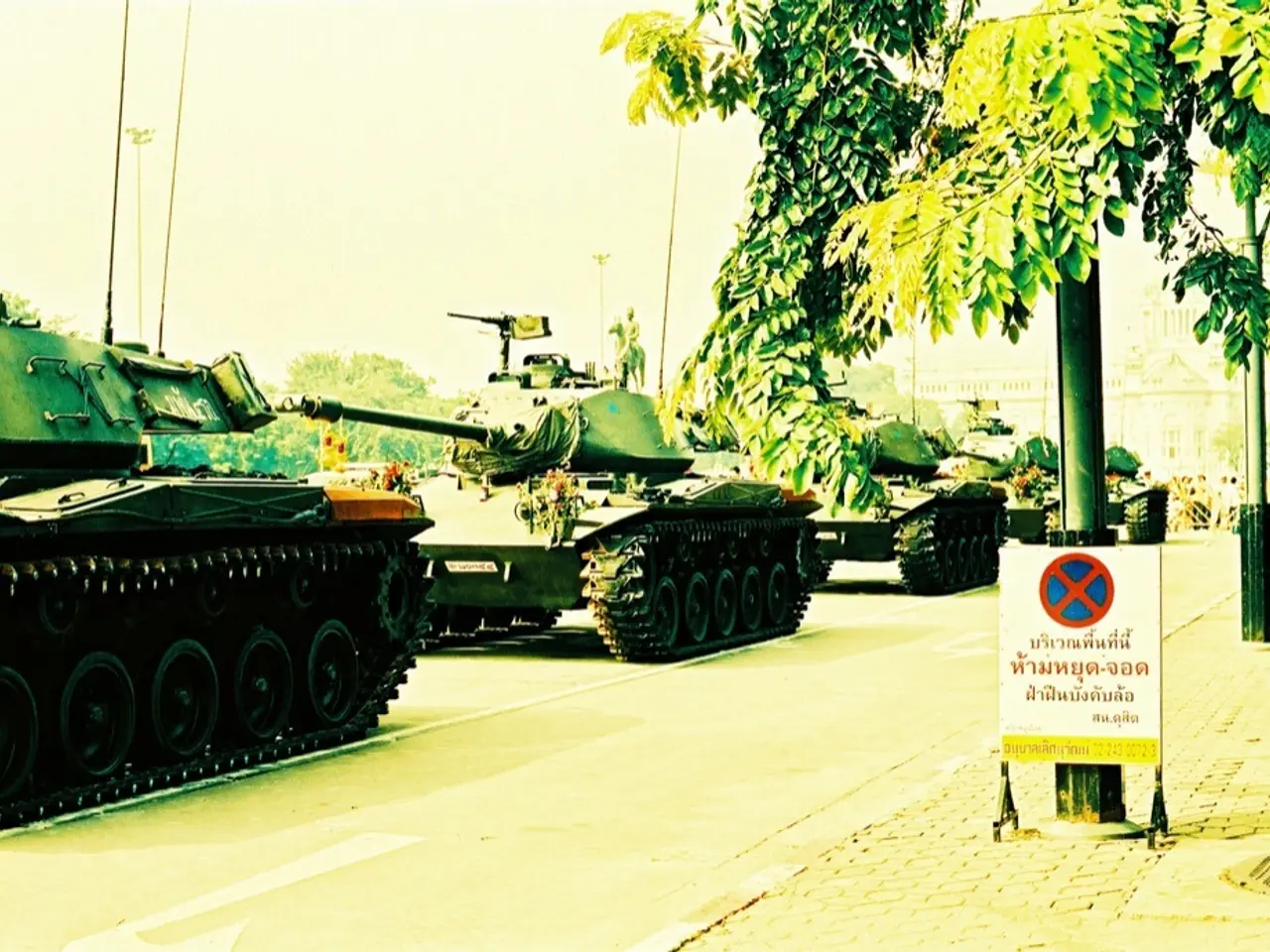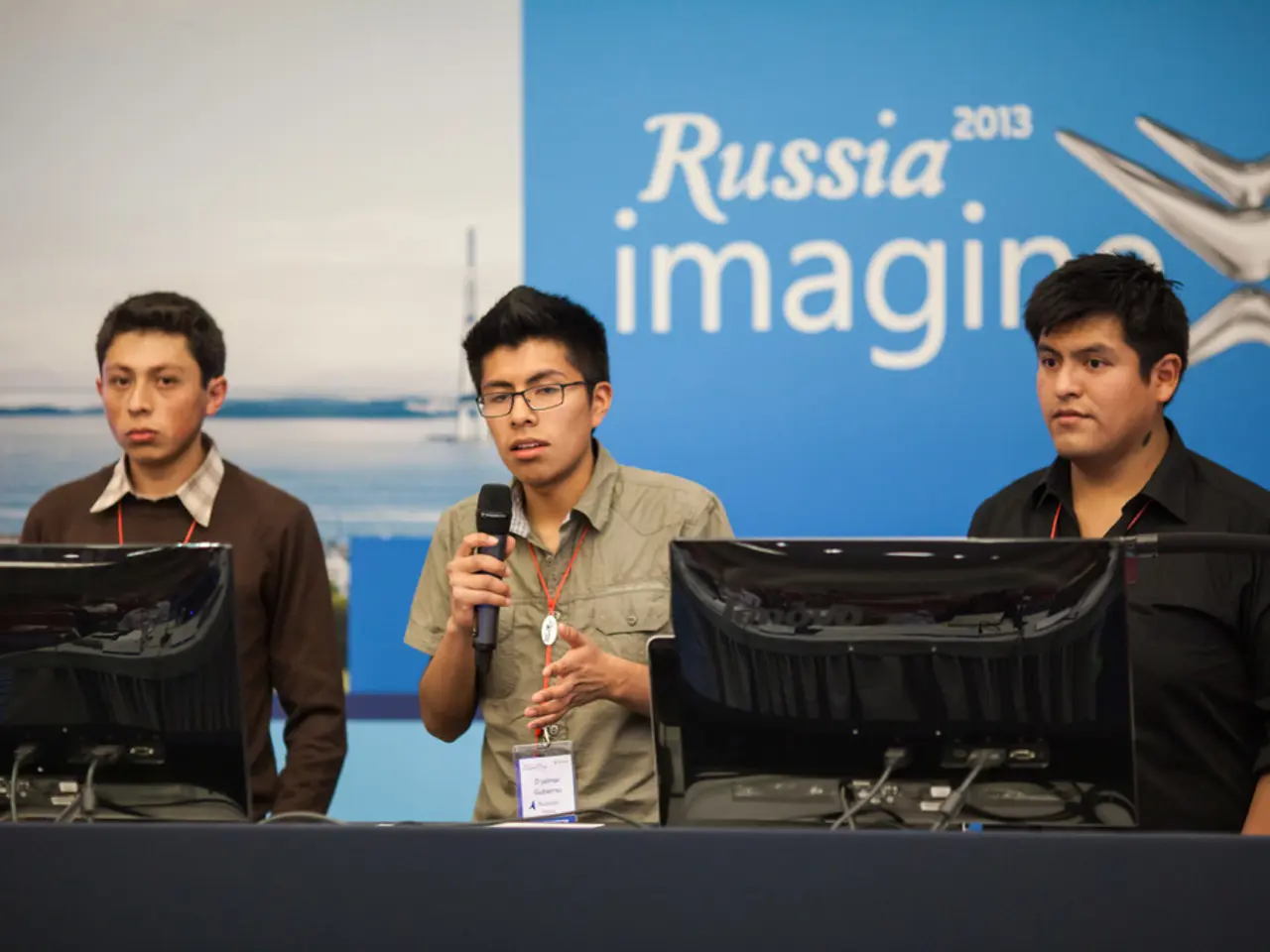Russia intensifies attacks on Ukraine, pushing forward before the American-proposed peace deadline approaches
The current political landscape is being reshaped by the impending deadline set by US President Donald Trump for a Russia-Ukraine peace deal and his upcoming meeting with Russian President Vladimir Putin.
Trump has shortened an earlier 50-day ultimatum to a final 10-day deadline, citing perceived lack of Russian progress[1][3]. This deadline coincides with a highly anticipated summit scheduled for August 15, 2025, in Alaska – the first meeting between US and Russian presidents since before Russia’s full-scale invasion of Ukraine in 2022[2][5].
Trump's approach signals an unprecedented readiness to accept many Kremlin demands, including Russian control over occupied Ukrainian regions, excluding Ukraine from NATO membership, and potentially easing sanctions on Russia[1]. Such concessions are widely seen as favoring Russia diplomatically and territorially, raising serious concerns from Kyiv and NATO allies. Ukrainian President Zelensky has explicitly rejected any peace deal requiring Ukraine to cede territory, underscoring the Ukrainian resistance to Trump’s apparent terms[2].
The absence of Ukraine’s direct involvement in the discussions is another major political implication. Experts highlight that Ukraine’s exclusion undermines the legitimacy of any deal and could marginalize Kyiv’s sovereignty and territorial integrity[4]. Meanwhile, Putin gains by engaging directly with a US president without making substantial concessions or agreeing to a ceasefire, enhancing Russia’s diplomatic stature despite ongoing conflict[4][5].
European allies are watching the developments cautiously, aiming to maintain a united front and urge the US to consider broader Western concerns and Ukraine’s position[4].
In summary, the looming Trump-Putin summit and Trump’s hard deadline for peace emphasize a US diplomatic pivot toward appeasing Russia at Kyiv’s expense, creating tensions with Ukraine and NATO partners and potentially reshaping geopolitical alliances and conflict dynamics in Eastern Europe[1][2][4][5].
Elsewhere, Rwanda has agreed to take as many as 250 migrants deported from the US, as part of efforts across Africa to placate Washington in the face of tariff threats and travel bans.
General news outlets are reporting that the US-Russia diplomatic dynamics are being reshaped by the Trump-Putin summit and the 10-day ultimatum set by Trump for a peace deal in Ukraine. At the same time, crime-and-justice headlines detail the transfer of 250 migrants from the US to Rwanda as a response to potential tariff threats and travel bans.






